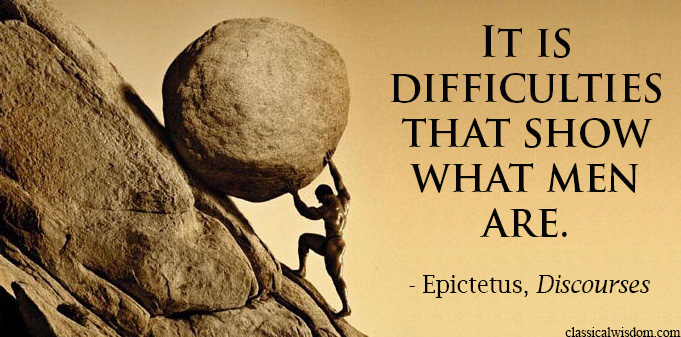It’s called the “Ham-Rig” Index in our household.
The premise is pretty simple. On the one end of the scale is a family member responsible for running a million dollar a day offshore oil rig… while battling coups, ebola outbreaks, international regulatory bodies and diminishing funds.
On the other side, another family member must buy a ham for a casual get together.
Guess who was more stressed?
It’s a trick question really, it couldn’t have been easier for either of them… though we certainly heard more about the pork leg.
The reality is that it doesn’t matter what is the cause of stress. There is no absolute correlation – some can handle war and torture better than others can deal with a dinner party.
Of course a huge difference is the philosophy of the individual. Probably the most famous example is James Stockdale, the US admiral who survived seven years as a POW in the “Hanoi Hilton”. He has very vocally discussed the influence of ancient Stoicism and in particular, the Roman slave-turned-philosopher Epictetus, whose lessons captured in The Enchiridion Stockdale credited with providing him strength during his ordeals as a prisoner.
So this brings us to this week’s question:
Is how we react to stress really in our control? And if it is, what can we do to handle it? What ancient examples and philosophies can help us today?
As always, you can email me at [email protected] or comment below
Now, as to last week’s question “Does technology change us?” – a note from my dear husband.
Through no planning whatsoever, your editor and her husband wrote on the same subject of technology – and its unintended consequences.
Drawing on the excellent and bizarrely pertinent book by Postman, Joel delves into what the medium of Twitter says about our culture. You can read it HERE.
Is how we react to stress really in our control? And if it is, what can we do to handle it? What ancient examples and philosophies can help us today?
As always, you can email me at [email protected] or comment below
Now, as to last week’s question “Does technology change us?” – a note from my dear husband.
Through no planning whatsoever, your editor and her husband wrote on the same subject of technology – and its unintended consequences.
Drawing on the excellent and bizarrely pertinent book by Postman, Joel delves into what the medium of Twitter says about our culture. You can read it HERE.












No comments yet. You should be kind and add one!
Our apologies, you must be logged in to post a comment.